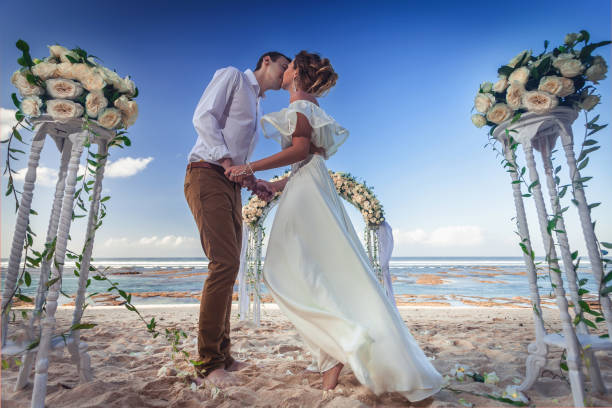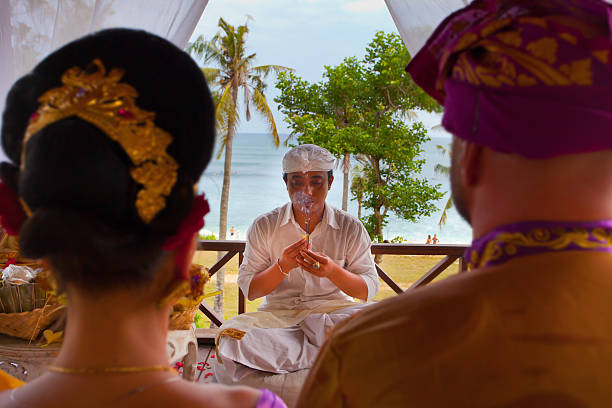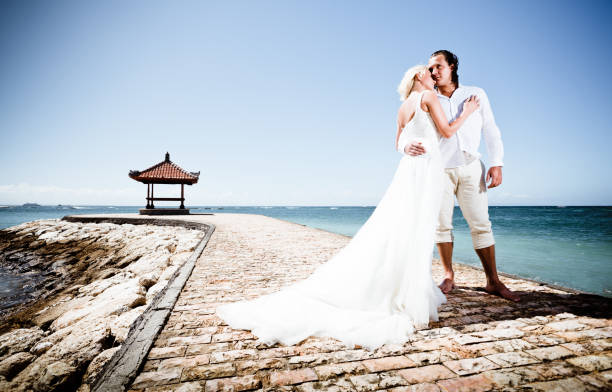Legal Marriage in Bali for Foreigners – Complete Guide by The Bali Lawyer



Bali has long been a romantic destination for couples seeking a beautiful and memorable wedding. The island’s stunning beaches, lush landscapes, and vibrant culture make it an ideal place for a wedding ceremony. However, for foreigners planning to get married legally in Bali, understanding the legal requirements and procedures is essential to ensure the marriage is recognized both in Indonesia and abroad.
At The Bali Lawyer, a trusted law service based in Bali, we provide comprehensive guidance for foreigners seeking to navigate the legal process of marriage in Bali. This guide covers everything from eligibility, documentation, and application procedures to legal recognition and post-marriage requirements.
Understanding Legal Marriage in Bali for Foreigners
In Indonesia, marriage is regulated under Indonesian Marriage Law No. 1 of 1974, which applies to both Indonesian citizens and foreigners. Legal recognition of a marriage in Bali involves fulfilling religious and civil requirements. Foreigners marrying in Bali must comply with Indonesian law to ensure that the marriage is valid and recognized internationally.
Legal marriage in Bali involves two main components:
Civil Registration – Ensures the marriage is recorded with Indonesian authorities.
Religious Ceremony – Must conform to the religion of the bride and groom. Indonesia requires that both parties follow a recognized religion for the marriage to be legally valid.
Eligibility Requirements for Foreigners
Foreigners wishing to marry in Bali must meet specific requirements:
Age Requirement
Minimum age for marriage: 19 years old for males and females.
Marital Status
Both parties must be legally free to marry. Previous divorces must be supported with certified divorce certificates. Widows or widowers must provide death certificates of previous spouses.
Passport and Visa
Valid passport is required for foreign parties.
Visa status must allow legal entry into Indonesia (tourist, social-cultural, or business visa).
Religion
Indonesia requires that both parties adhere to a recognized religion. Couples must conduct a religious ceremony according to their faith.
Consent and Legal Capacity
Both parties must provide consent and have the legal capacity to marry.
Documents Required for Foreigners to Get Married in Bali
Foreigners need several documents for a legal marriage in Bali. These must often be translated into Bahasa Indonesiaand notarized or legalized by their home country and Indonesian authorities. Common documents include:
Passport Copies
Photocopies of the personal details page and visa page.
Birth Certificates
Certified copies, translated into Bahasa Indonesia if necessary.
Certificate of No Impediment (CNI) / Single Status Certificate
Confirms that the foreigner is legally free to marry.
Must be obtained from the foreigner’s home country and legalized by the Indonesian embassy or consulate in Indonesia.
Divorce or Death Certificates (if applicable)
Official documents from previous marriages must be translated and legalized.
Letter of Domicile
Proof of residence may be required, depending on local procedures.
Affidavit of Religion
Confirms the foreigner’s religion, necessary for the religious ceremony.
Step-by-Step Process to Get Married Legally in Bali
Foreigners must follow a structured process to ensure legal compliance:
Step 1: Obtain Required Documents from Home Country
Certificate of No Impediment, birth certificate, divorce/death certificates (if applicable).
Legalization at the foreign embassy or consulate in Indonesia.
Step 2: Translate and Notarize Documents
All foreign documents must be translated into Bahasa Indonesia by an official sworn translator.
Notarization ensures legal validity in Indonesia.
Step 3: Submit Application to Civil Registry Office (Kantor Catatan Sipil)
Submit all required documents to the local Civil Registry Office in Bali.
Obtain approval for marriage registration.
Step 4: Conduct Religious Ceremony
Perform a religious ceremony according to the faith of both parties.
For interfaith marriages, additional approval from the Office of Religious Affairs may be required.
Step 5: Civil Registration of Marriage
After the religious ceremony, register the marriage at the Civil Registry Office.
Receive an official marriage certificate (Akta Nikah) from the Civil Registry Office, which is legally recognized in Indonesia.
Step 6: Apostille or Legalization for International Recognition
If the marriage needs to be recognized in the foreigner’s home country, the Akta Nikah must be legalized or apostilled through the Indonesian Ministry of Law and Human Rights.
Legal Considerations for Foreigners Marrying in Bali
Interfaith Marriages
Indonesia has strict rules regarding religion in marriage. Interfaith couples may need additional approval from religious and civil authorities.
Legal Recognition Abroad
Foreigners should ensure the marriage certificate is recognized in their home country. Apostille or embassy legalization may be required.
Name Changes
Name changes are permitted after marriage but must comply with Indonesian regulations and may require additional documentation.
Divorce and Separation
Divorce in Indonesia must follow legal procedures, and foreign divorce certificates must be recognized in Indonesia for subsequent legal matters.
Children and Citizenship
Children born from a marriage in Bali are entitled to Indonesian birth certificates and may claim dual citizenship based on parental nationality.
Benefits of Getting Married Legally in Bali
Legal Security
Marriage is recognized by Indonesian law, ensuring protection of rights and legal status.
Access to Residency and Dependent Visas
Spouses may apply for dependent KITAS or long-term stay visas.
International Recognition
Properly registered marriages are recognized internationally, enabling legal documentation and travel.
Inheritance and Property Rights
Legally married couples enjoy clear rights regarding inheritance, property, and joint assets.
Peace of Mind
Ensures compliance with Indonesian law, preventing legal complications or disputes.
Why Use The Bali Lawyer for Legal Marriage Services
At The Bali Lawyer, we specialize in guiding foreigners through the complex legal procedures for marriage in Bali. Our services include:
Assessing eligibility and advising on legal requirements.
Preparing, translating, and notarizing all necessary documents.
Coordinating with civil registry offices and religious authorities.
Ensuring marriage certificates are fully recognized in Indonesia and abroad.
Assisting with dependent visas and legal residency applications.
Our team ensures that the entire process is smooth, efficient, and fully compliant with Indonesian law.
Tips for Foreigners Planning a Legal Marriage in Bali
Plan Ahead
Start the process well in advance to gather all documents and complete translations and notarizations.
Ensure Document Accuracy
Mistakes in documents can delay approval. Work with a legal service to verify all paperwork.
Understand Religious Requirements
Confirm that the religious ceremony aligns with legal requirements for recognition in Indonesia.
Work with Legal Experts
Legal guidance ensures compliance, avoids delays, and facilitates international recognition.
Coordinate with Embassies if Needed
For international recognition, coordinate with your home country’s embassy for legalization or apostille services.
Getting married legally in Bali as a foreigner requires careful planning, proper documentation, and adherence to Indonesian law. By following the official process, foreigners can ensure their marriage is legally recognized in Bali and internationally.
At The Bali Lawyer, we provide full legal support for all steps of the marriage process, from document preparation and translation to registration and legal recognition. Our expertise ensures that your wedding in Bali is not only beautiful but also fully compliant with Indonesian law, providing peace of mind and legal security.
Contact The Bali Lawyer today to navigate the legal marriage process in Bali efficiently and ensure a smooth, recognized, and worry-free wedding experience.
